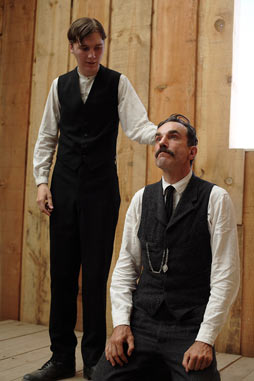By Gary Collins/managing editor

Motivated by their own life experiences, Stephen Keese and Candice Vermuelen took time to share words of encouragement to the less fortunate.
Beginning in October, Keese and Vermuelen, NE students visited MHMR treatment centers with what, they called Project Dependency Outreach.
The project was the idea of Keese, student and part-time college employee.
Keese began brainstorming last spring and came up with the idea to reach out to those people he calls “the forgotten.”
“There were so many reasons I did this,” he said. “I believe that if we reach out to the treatment centers, it will reduce the debt to society because of their getting an education like me.”
Keese credits the people who took the time to mentor him and not write him off. He wanted to give that experience to others.
“Now I’m doing better in my life. When everyone else had given up on me, I had people who motivated me to go back to school and to get an education,” he said.
Keese searched for treatment centers willing to allow him to speak with their patients. Through his search, he found the MHMR Tarrant County Recovery Center also known as Pine Street.
Pine Street aids and treats victims, many who are or were homeless, of alcohol and drug addiction. The students also spoke to teens at the Tarrant Youth Recovery Campus.
The project was approved by the TCC administration and the NE Ambassadors, a student club that promotes the college. Vermuelen and Keese began making their rounds as the unofficial ambassadors from TCC.
“I wanted to represent TCC because they were a part of my recovery especially Lori [Fowler],” Vermuelen said. “I was proud to wear my TCC Ambassadors shirt.”
Coming from vastly different worlds, both students found themselves immersed in a world of drug addiction.
Keese’s troubles began after he was diagnosed with ADD at 8.
“I was basically deemed unsuccessful at life and just kind of pushed along from grade to grade, and I believe being put on Ritalin and other behavior drugs contributed to my addiction,” he said.
As Keese got older, the years of medication had created a void in his life.
That void, combined with not having an education, hindered his future.
Frustrated and finding himself wanting drugs and more drugs, he eventually dropped out of high school.
“I didn’t care about myself; I didn’t care about anything, and I got caught up in the drugs,” he said.
Vermuelen, a former TCU student and Pine Street patient, got caught in the darker side of life.
“At TCU, I lived a double life, going to my classes during the day and doing some other things at night,” she said.
Her troubles began after she met a guy who led her astray. Vermuelen cites her parents’ intervention as a changing factor in her life.
After they stopped paying for her classes [at TCU], she found coming to TCC a humbling experience for her.
“I did not want to go [to Pine Street]. My parents basically sent me, and I was court ordered,” she said. “When I was there, I never thought I would be on the other side.”
Vermuelen’s self-esteem was her biggest obstacle to solve. She said the counselors at Pine Street thought she was one of the most stubborn people they ever had.
“My change of thought after being there was huge,” she said.
After her recovery, Vermuelen decided to continue her studies at TCC.
“It was my choice to stay here because I like the environment, the teachers and the clubs. I like the small school atmosphere,” she said.
The duo went into the project with the goal of giving to others, not seeking community service points.
“My goal is to reach people through my experience and give them strength and hope,” he said. “I want to give them hope and say, ‘hey … we care about you.’ And also to get them to come to college. That’s the goal … that’s what we want as a society, right?”
Keese is certain his and Candice’s words did not fall on deaf ears.
“The enthusiasm we got from everybody raising their hands and saying, ‘Yeah, I wanna go to college’ was encouraging,” he said. “If just one person goes [to college] it’ll be worth it.”
In their presentations, Keese and Vermuelen gave information on getting financial aid, completing a GED and submitting an application. They ended by handing out brochures on a few TCC degree programs.
“I wanted physical things [for them] to look at and see this is what they have to do,” he said, “also being able to help them learn it’s not that hard to go to school.”
Speaking from experience, Keese and Vermuelen have the credibility to stand behind their words.
“I know when I had somebody talking to me who had a similar experience of what I went through like a mentor, I took those words and ran with it,” Keese said, “I think everyone is that way.”
As of Nov. 16, Keese has been clean and sober 10 years.


























